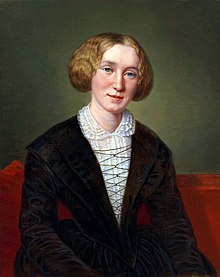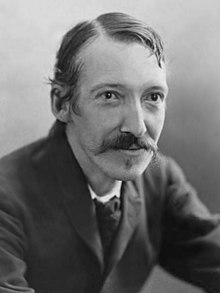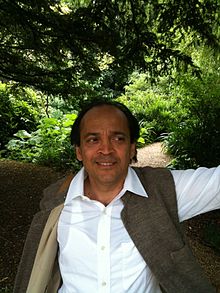 |
| Join Us Every Friday #NovConv |
To be a little different from the usual
'meet the author'
'meet the author'
let's meet a
character...
Doña Maria de los Angeles Catalina Fernanda Santoña Gomez de los dos Castillas. I am also known as Baroness Metherall.
My brothers and certain selected people call me Alina.
from
character...
My brothers and certain selected people call me Alina.
Q: Hola Senora. I’m Helen, host of Novel Conversations,
please make yourself comfortable. Would you like a drink? Tea, coffee, wine –
something stronger?
A: A glass of chilled wine, thank you. I have never tasted tea
or coffee although I have heard of them.
Q: I believe you are a character in J.G. Harlond’s novel The Chosen Man. Would you
like to introduce yourself? Are you a lead character or in a supporting
role?
A: My
name is Doña Maria de los Angeles Catalina Fernanda
Santoña Gomez de los dos Castillas. I am also known as Baroness
Metherall. My brothers and certain selected people call me Alina. You
may call me Doña Maria de los Angeles or Baroness. Or, as I am the only daughter
of a 17th century Spanish condé and you are a humble Englishwoman,
‘milady’ will serve. Naturally, I am a main character. A true heroine to my way
of thinking given the trials and tribulations I have to face.
Q. “Thank you, milady, [hides a slight frown] can you tell us something
about The Chosen Man?
A:
Well, it is quite a long story, a historical fiction trilogy in fact. Let me
start by telling you how I become involved, because many people – men mostly –
think it’s about that rogue Ludo da Portovenere and it is as much my
story as his. Initially, I get caught up Ludo’s nefarious affairs (both
business and of the heart) when he insists on rescuing me from a bunch of
cut-throat corsairs on a quayside in northern Spain. I should explain, Ludo is
a Genoese silk and spice merchant who runs a side line in anything remotely
profitable. In Book 1 it is tulip bulbs and he is travelling to Amsterdam when
we first coincide. Anyway, he bundles me into a boat like a mere chattel and a
few hours later we are sailing for Plymouth. Where – and this will shock you –
he sells me! (Helen thinks to herself, 'I don't blame him, I'm surprised he didn't give her away!') To a nobleman, which would have been acceptable, I suppose, under the
circumstances, but this particular nobleman is a weed. Utterly insignificant. Impertinence
is not the word: it was an outrage. Apart from anything else, Ludo had no need
to interfere with those pirates in the first place – although later I learn he is
one of them (!) – I could have handled them perfectly well on my own. I raised
four younger brothers single-handedly; a few stupid men with bent swords were
well within my scope. Look what happened when they turned up again when – oh,
but I shouldn’t mention that, should I? Bit of a spoiler. The point I should
make is that this part-time pirate Ludo da Portovenere, for all his charming
ways, is not to be trusted. He says one thing and before you can blink,
he’s up to something new and entirely to his own advantage. That was why [she leans in to share a confidence] he was commissioned to influence that tulip
scandal in Holland: to make a bad situation infinitely worse. [Leans closer.] He was commissioned by the Vatican for that, and the King of Spain.
Later, he transfers or sells his skills to Charles Stuart and his French wife Queen
Henrietta Maria. They task Ludo to fulfil all manner of secret matters, and one
way or another I always seem to be involved.
 |
| Ludo's ship the Tulip |
Q: No
spoilers, but are you a ‘goodie’ or a ‘baddie’? (Or maybe you are both?)
A: If you mean am I a ‘goodie’ as in a story book heroine, yes indeed. But, no, I should confess to not always being what a priest – or my loathsome English mother-in-law – would consider ‘good’. I could never have survived if I’d been a soppy ‘good girl’. Besides [she gives a small sigh then a wicked smile], a good girl would not behave with Ludo the way I do.
[Helen smiles back at her - then they both find themselves grinning at each other like old-friends and secret conspirators.]
[Helen smiles back at her - then they both find themselves grinning at each other like old-friends and secret conspirators.]
Q: Tell me about another character in the novel –
maybe your best friend, lover or partner … or maybe your arch enemy!
A: There are three principle characters in Ms Harlond’s
version of events: Ludo, my dear friend, poor Marcos Alonso Almendro, and I. I
say ‘poor Marcos’ because he is. I am the daughter of a Spanish grandee;
Marcos is a nobody. Kind and loyal, but a nobody. I could mention my husband
Sir Thomas, who I do come to care for eventually, but he’s so boring I won’t trouble
you with a description. We all have an arch enemy (because of Ludo), a slimy
Vatican assassin named Rogelio. But I have no wish to tell anyone about him.
Next question.
Q: Is
this the only novel you have appeared in, or are there others in a series?
A: Are there others? Weren’t you listening? I am talking about
three complete novels. Each of which can stand alone as booksellers say
nowadays. Together they relate some of the lesser known, more surprising bits
of European history. What was going on behind the scenes of the Thirty Years
War and the English Civil War between 1635 and 1644 – a secret treaty between
England and Spain for example, which would have changed British history
entirely had Charles not lost his head. Apart from engineering the financial tulip
scandal in Holland, as I mentioned, Ludo was acting as an agent for Charles
Stuart and then involved in selling part of the English Crown jewels for Henrietta
Maria. I was too I confess; and the jewels business didn’t go entirely to plan.
But, oh, the Three Brethren spinal brooch
was exquisite, so were all those luscious pearls. Ludo was also getting up to mischief
in the spice trade as far away as Goa in India. But you are interested in me,
aren’t you? Next question.
Q: Tell
us about your favourite scene?
A: I’m very fond of what happened with the corsairs at
the end of Book 1. My adventures, or
misadventures, in Book 2 with the Spanish Royal family were jolly exciting,
although heaven knows I nearly drowned in that lake in that flimsy costume. One
particular scene? Standing up to my husband’s ghastly, greedy cousin when he
comes to take over Crimphele (the family estate in Cornwall). Setting the house
on fire then escaping Civil War England – that was very dramatic in Book 3. Although [gives a deep sigh] there were also some very sad moments. I’d
prefer not to dwell on those: I like to keep my true feelings to myself as far
as possible. Ludo usually guesses what I am thinking, sometimes Marcos, but
nobody else.
Q: What
is one of your least favourite scenes you appear in?
A: When my hateful English mother-in-law locks me in a room
and I am prevented from being with my new born son. That was unquestionably
the worst moment of my life. Later, in Book 3, when that slithering creature
Rogelio kidnaps me. That was pretty awful. Terrifying, actually. As well as disgusting.
Utterly, utterly disgusting. [Helen nods, remembering those scenes and realises that Alina's apparent arrogance is a shield that she hides behind to protect herself.]
Q: Tell me a little about your author. Has she written any
other books?
A: Jane Harlond? She is always tapping away at the keyboard contraption in her study. That’s when she is not reading. She likes to write about curious
real events so she does hours of background reading and research. In The
Empress Emerald it was about espionage for India during the final days of
Raj. The hero of that story, Leo Kazan is a descendant of Ludo, and the woman
he comes to love – by a wild coincidence – is one of my descendants from
Crimphele. Jane got far too fond of Ludo for her own good, you know. Even has
another set of stories planned for him. Currently, I am pleased to say, she is writing
dark humour crime novels set during the Second World War. Based on lesser known
real events again. For a law-abiding person she either finds or thinks up all
manner of wickedness. I will say this for her, though, Jane can make most
readers smile. Some scenes are very amusing, if you have a sense of humour. Not
everyone does.
Q:
How do you think authors can be helped or supported by readers or groups?
A: Authors need reviews apparently, so other readers
can see opinions of their work. I think authors should settle for respect and
be done with it, but that’s not the modern way.
Q: If your author was to host a dinner party who would she invite, and
why?
A: Jane has travelled a good deal, lived and worked in various countries so she enjoys talking about different cultures and books. For a fascinating, meaningful dinner conversation she would invite:
A: Jane has travelled a good deal, lived and worked in various countries so she enjoys talking about different cultures and books. For a fascinating, meaningful dinner conversation she would invite:
(images via Wikipedia)
Helen: Thank
you, Doña Maria de los Angeles it was a pleasure talking to you.
A: It was
a pleasure. You may call me Alina now if you like. Strictly in private.
Helen: [smiles, very much liking her after all.] Thank you, that is most kind. Would your author like to add a short excerpt? But while she is doing so, I've found chatting together like this has been thirsty work, would you like a refill of that delicious cold wine? I’ll join you I think.
Salud!
Salud!
Ships bells jangled, harbour
bells clanged, whistles blew, a hundred men shouted at once. The boys loading
the fishing boat and mending nets careered past him. One shouted, “The Turks!”
Marcos froze. Should he run
for the tender, jump into the water, or climb into the nearest vessel and lie
flat? He’d never been here before, where could he hide? They’d have him this
time and he’d be rowing them back to Algiers or Salé if he didn’t make shift.
He scanned around for a bolt hole and caught sight of the girl: she hadn’t
moved. Didn’t she know what was happening?
He moved towards her again,
but it was too late. A dozen dark-skinned bodies in brightly coloured
pantaloons were swarming over the quayside. Shots were fired. He dashed towards
the girl, fighting against the current of local seamen running for the relative
safety of their streets and homes. Grabbing the girl round the waist he pulled
her down behind the coiled rope onto the ground. She righted herself
immediately and gave him a sharp slap across the head.
“Get off me!” she shouted,
scrambling to her feet. As she did so, she was swung into the air by a
woolly-headed giant who bundled her under his arm in a practised clinch. He
turned back toward the edge of the quay ready to toss her into a boat. She
squirmed frantically under his arm in a froth of white petticoats.
Then suddenly she was
sprawled on the ground again. The African giant was flat on his face and Ludo
was standing over them.
He swore at the corsair in
galley slang and pulled the girl to her feet. The huge galley rat stayed cowed
on the ground, but a couple of other corsairs abandoned their own catches and
turned on him, weapons drawn. He spoke again and they halted.
Marcos nipped between them
and stood as close to Ludo as physically possible. The girl smoothed down her
skirts, straightened her shoulders and started to walk away. Seeing her move,
Ludo reached out and caught the back of her dress, but she deftly turned out of
his grip and kicked him. The men laughed. Ludo grabbed her arm and pulled her
to him once more. She bit his hand and he let her go with a yelp, “Regazza disgraziata!”
The slavers screeched with
laughter. He spoke to them and they slapped their thighs. The girl lifted her
nose as if there were a disgusting smell and stared out to sea.
Marcos straightened his back,
lifted his chin and folded his arms. Standing in what he hoped was a position
demonstrating strength, he watched his patrón
deal with the licensed pirates.
“She’s mine, but I’m tempted
to let you have her,” Ludo was saying. “She’s nothing but trouble.”
The men guffawed. “You’d get
a good price for her.”
“That’s what I tell her. If
she doesn’t mend her ways, I say, it’s a one-way trip to North Africa for you.”





















Marvellous! Bravo for breaking down Dona Maria de los Angeles brittle exterior to reveal the real woman behind it! And more adventures of Ludo? Can't wait!!!
ReplyDeleteA 'real woman' oh yes, indeed. Only the brave or stupid mess with Doña Alina.
ReplyDeleteWell, Milady, I had to chuckle when you arose your gracious hostess's ire at first. But when she realized it was your way of protecting yourself, I quite came to like you then, too.
ReplyDeleteAnd, Jane, a tantalizing excerpt indeed. I sensed you are growing quite fond of your "bad boy" Ludo.
Well, you know about bad boys as well, Inge, with a bit of charm they can get away with all manner of wickedness.
ReplyDeletePerhaps we ought to start a Bad Boy Club?
ReplyDeleteI particularly liked this interview as it was clever - I started out thinking 'Oh-oh, this is going to be awkward" ended up really liking my guest! A wonderful study in human behaviour Jane!
This looks like an exciting read - added to the TBR pile! And good to see some of my favourites at your dinner party - R L Stephenson and George Eliot!
ReplyDelete